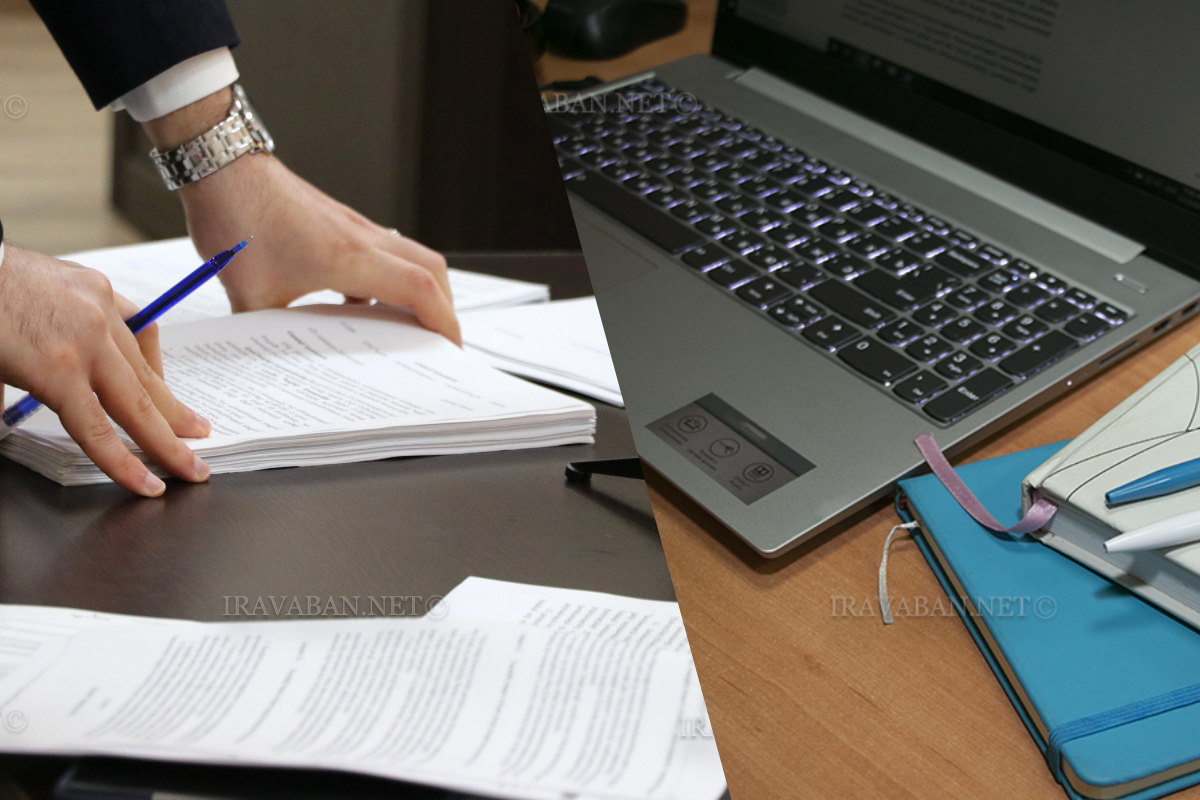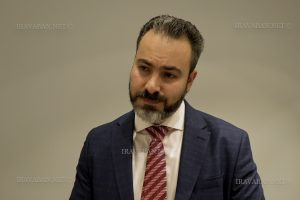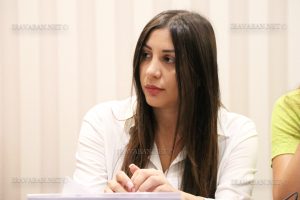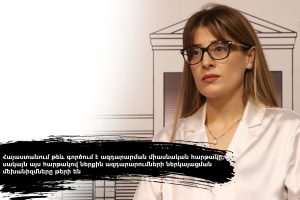Whistle-blower is a natural or legal person, who reports, in good faith and as provided for by this Law, information regarding a case of corruption or a violation in respect of conflict of interests, or rules of ethics or incompatibility requirements, or other restrictions or declaration, or other harm to public interests or the threat thereof related to the official or the body, with whom he or she is or was in employment or civil law, or administrative law relations, or to whom he or she has applied for the purpose of rendering services, or who has been mistakenly perceived as a whistle-blower.
This is defined by the Law of the Republic of Armenia on the System of Whistle-Blowing.
The person shall be considered to be mistakenly perceived as a whistle-blower, where he or she has been perceived, without whistle-blowing, as a whistle-blower by other persons, or against whom harmful actions have been applied;
Article 4 of the law defines the types of whistle-blowing.
- Internal whistle-blowing shall be considered as submission of a report to his or her immediate supervisor or his or her superior, or another person exercising supervision over him or her, or the person authorised by the head of the competent authority.
- External whistle-blowing shall be considered as submission of a report to the competent authority.
- Public Reporting shall be Publications in the mass media regarding the violation of a corruption case or a conflict of interest or the rules of conduct or incompatibility requirements or other restrictions or related to the declaration, which, in accordance with the Criminal Procedure Code of the Republic of Armenia and the Law “On the Prevention of Corruption Commission”, respectively may be grounds for initiating proceedings.
You can report anonymously, for example, through the azdararir.am platform.
It is also important to emphasize the features of anonymous reporting.
- The whistle-blower submits the anonymous report by entering it into the unified electronic platform.
- When submitting an anonymous report, it is guaranteed that the personal data of the whistle-blower will not be disclosed both to the competent authority and to other persons, except when the whistle-blower discloses his personal data.
- The competent body does not have the right to take measures to reveal the personal data of the whistle-blower who submitted an anonymous report.
If the report by other types of reporting has not been processed in accordance with the law and within the time frame, the whistle-blower can make the report known to the public through mass media.
Mass media receiving the report ensure non-disclosure of personal data of the whistle-blower, unless otherwise provided by law, or the written consent of the person is not available.
Whistle-blower protections extend to the mass media to the extent that those protections are inherently applicable to them.
The competent body ensures the recording of reports related to its sphere of competence, discussion, taking measures within its competences and, if necessary, adopting the relevant act.
The whistle-blower has the right to protection.
A whistle-blower shall have the right to protection in conformity with this Law. The protection provided to the natural person acting as a whistle-blower shall extend to the legal person acting as a whistle-blower to the extent that the protection is applicable thereto by mutatis mutandis.
A whistle-blower shall have the right to confidentiality of his or her personal data and protection from harmful actions and consequences thereof.
The whistle-blower has the right to receive confidential advice and legal assistance from the Human Rights Defender.
A whistle-blower can apply for special protection to a competent authority, which is obliged to immediately consider the application and make an appropriate decision. The said decision is sent to the Police to ensure protection in accordance with the law.
The decision on providing special protection to the whistle-blower is subject to execution by the competent state bodies in accordance with the procedure established by Chapter 9 of the Criminal Procedure Code of the Republic of Armenia to the extent that it is applicable in its nature (mutatis mutandis).
When protecting his rights, the whistleblower shall use the means of protection provided by the Civil Code of the Republic of Armenia and other laws.
In order to protect the whistle-blower from harmful actions or their consequences, the relevant body within its jurisdiction shall:
1) Ensure confidentiality of information,
2) Create sufficient conditions for the unhindered performance of official duties by the whistle-blower.
3) In case of unnecessary and illegal interventions in the activities of the whistle-blower, takes appropriate measures to eliminate them.
4) Implement the protection of the whistleblower’s labor rights by the means and procedure defined by the Labor Code of the Republic of Armenia.
5) Take necessary measures to protect the whistleblower arising from the situation, including moving the whistle-blower to another office, ensuring that the whistleblower is not artificially burdened with instructions, etc.
A whistle-blower cannot be held liable for whistleblowing, unless his act involves a crime.
Any contract or provision of a contract which purports to deprive or limit a person’s right to whistle-blower protection is void.
A person related to the whistle-blower has the right to use the whistle-blower’s remedies if he/she reasonably believes that harmful actions may be taken against him/her due to his/her connection with the whistle-blower.
We do not forget that whistle-blowers are not “snitchers”, they are decent and law abiding citizens.
This publication was prepared within the framework of the program “Multifaceted Whistle-Blowing Promotion in Armenia”, implemented by the “Armenian Lawyers Association” (ALA) NGO with the support of the Open Government Partnership (OGP), funded by the European Union (EU) within the framework of the “EU for Good, Eastern Partnership” project.
This publication expresses the position of the author, the ALA, which does not necessarily coincide with the position of the OGP and the EU.
https://www.tiktok.com/@iravaban.net/video/7268277293028543751?lang=en


















